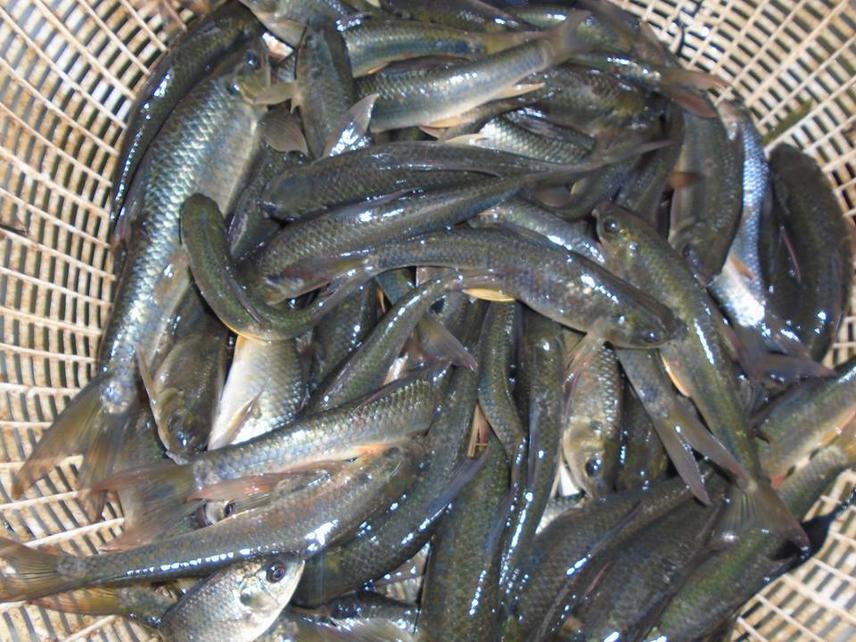Veryl Achieng
Other projects
29 Jan 2014
Promoting the Conservation of Endangered Fish in Lake Kanyaboli through Local Community Involvement in Alego, Kenya
3 Apr 2018
Initiating and Consolidating Community Led Integrated Fish-Farming (Polyculture) to Promote Conservation of Endangered Fish in Lake Kanyaboli
The project will aim at continuing with the fish monitoring activities in collaboration with Jaramogi Oginga University. Furthermore we will implement intensive stakeholders forums aimed at harmonizing policies and laws for the protection of the endangered fish species in Lake Kanyaboli while also carrying out community and school outreach programs.

Fingerlings from one of the sites during monitoring.
Lake Kanyaboli is thought to be the second largest ox-bow lake in Africa, is situated on the north-eastern corner of Lake Victoria and its GPS coordinates are 0o 3’ 15” N and 34o 9’ 44” E. It has a mean depth of three meters and covers a total area of 1,500 Ha. It is one of the most important riparian satellite lakes around the Lake Victoria Basin. L. Kanyaboli is part of Yala Swamp, which forms the mouth of both Rivers Nzoia and Yala. Lake Kanyaboli is separated from Lake Victoria by massive papyrus swamps that presently inhibit faunal exchanges between the two lakes. No nile perch has ever been observed in Lake Kanyaboli, corroborating that it has been isolated from Lake Victoria at least since the 1950s. L. Kanyaboli has been sparingly studied and owing to its biological importance is their need for continuous monitoring and provision of baseline data that will keep guiding conservation work. While this ecological dwindling of fish in L. Kanyaboli has had wider ecological problems, the locals have been similarly deprived of their daily livelihood and further forced to engage in both environmentally unsustainable and also negative social activities. As part of its objectives the project will entail detailed fish monitoring which is a continuation from the basic monitoring initiated in the first project phase and also in collaboration with students and researchers from Jaramogi University.
The project will carry out programmes to educate, regulate and advocate for better fishing practices in L. Kanyaboli. This will be achieved through local networks and empowerment of local communities. The Fish Conservation Committees (FCCs) that were formed in the first project will be used to help in ensuring that fishing quotas are followed to allow spawning and prevent indiscriminate fishing. This will be done with active and full participation of the entire riparian fisher folk community. The intensive monitoring program initiated, will be able to promote the restriction of threatened and endangered fish cichlids whose stocks are already low from being overfished. The FCCs will advice the local community to help in enforcing the by-laws that strongly prohibit the use of mosquito nets for fishing. Furthermore, there will be the promotion of ecological and recreational benefits such as ensuring the increase in river connectivity by creating healthier aquatic habitat for fish and other biodiversity, improving water quality and quantity through riverine clean-up activities.